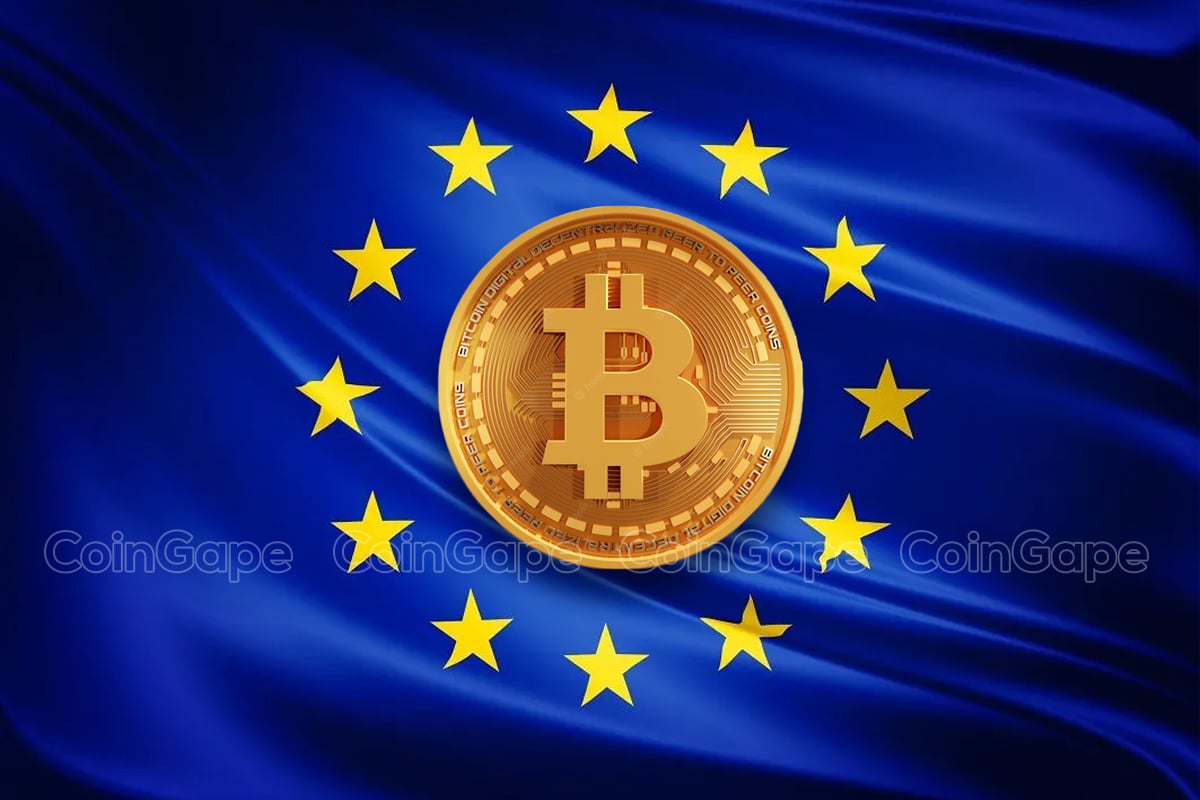Within the dynamic panorama of cryptocurrency, the European Union (EU) finds itself at a important juncture with the upcoming implementation of the Markets in Crypto-Belongings regulation (MiCA). Because the countdown begins, EU regulators and crypto corporations are in a race to strategically place themselves for the brand new regime.
Nevertheless, amid the flurry of exercise, challenges and uncertainties loom massive, casting shadows over the EU’s capability to draw and regulate crypto ventures successfully.
EU’s Dilemma with MiCA: Navigating Regulatory Waters
With lower than a 12 months left till the enforcement of MiCA, European regulators and crypto firms are grappling with essential choices relating to their future operations. MiCA, touted as a game-changer, guarantees to open doorways for crypto corporations to faucet into the huge EU market, price a staggering $19 trillion.
Nevertheless, the highway to compliance is fraught with complexities, as nations vie to lure crypto ventures with tailor-made laws. In response to a DL Information report, Elizaveta Palaznik, a MiCA specialist, emphasizes the importance of this regulatory competitors, stating, “If a rustic already has expertise coping with one particular sort of companies, it makes a variety of sense they may maintain attracting these.”
In the meantime, Luxembourg, famend for its attractiveness to funding funds, has change into a magnet for crypto funds as nicely. Alternatively, Eire, recognized for its pleasant stance in direction of Large Tech corporations, has emerged as a well-liked vacation spot for crypto giants like Coinbase and Ripple.
Concurrently, France and Malta have additionally carved niches for themselves, attracting buying and selling platforms and Web3 gaming platforms respectively. Nevertheless, disparities in regulatory approaches amongst EU member states pose challenges for crypto corporations in search of consistency and readability in compliance necessities.
The looming deadline for MiCA’s implementation, set for December 30, 2024, provides urgency to the scenario. Whereas the crypto regulation permits for a transitional interval of as much as 18 months, some international locations are considering shorter durations, citing the necessity for swift adaptation.
Notably, Palaznik reveals, “I’ve heard some rumors that in Luxembourg, regulators will go from 18 to 12 [months].” This variability in transition intervals displays the divergent approaches adopted by EU nations in direction of crypto regulation.
Additionally Learn: XRP News- Core Devs Releases Rippled 2.1 for XRP Ledger AMM
Stablecoin Impacted Amid Regulatory Woes
The European Union (EU) has taken a big step to manage stablecoins with the introduction of the Markets in Crypto-Asset Regulation (MiCA), amid international cryptocurrency panorama adjustments. Notably, MiCA brings forth a strong framework for overseeing “important stablecoins,” subjecting them to strict supervision by the European Banking Authority (EBA) throughout EU member states.
Nevertheless, disparities come up when evaluating MiCA’s standards with established fashions just like the Basel Committee on Banking Supervision’s (BCBS) framework for international systemically vital banks (G-SIBs). Whereas MiCA marks an important transfer in direction of regulating the stablecoin market, discrepancies in its implementation sign the necessity for a nuanced method to mitigate systemic dangers successfully.
In the meantime, as digital property proceed to evolve, the EU’s position in shaping stablecoin regulation stays pivotal for making certain monetary stability and shopper safety.
Alternatively, the EU strives to ascertain a unified regulatory framework for cryptocurrencies, which has sparked inconsistencies amongst member states and poses important challenges for asset managers. Notably, a current incident involving Jupiter, a distinguished asset administration agency, underscores the complexities confronted by fund managers in navigating regulatory waters.
Regardless of Germany’s lenient stance on crypto investments, Eire’s prohibition on cryptocurrency publicity in Ucits funds compelled Jupiter to retract its funding in Ripple’s XRP ETP. This incident highlights the pressing want for harmonization and readability in crypto laws throughout the EU to foster a conducive surroundings for funding and innovation.
Additionally Learn: Shiba Inu Weekly Burn Soars 160% As 102 Mln SHIB Burnt
The offered content material might embody the private opinion of the creator and is topic to market situation. Do your market analysis earlier than investing in cryptocurrencies. The creator or the publication doesn’t maintain any accountability on your private monetary loss.


✓ Share: